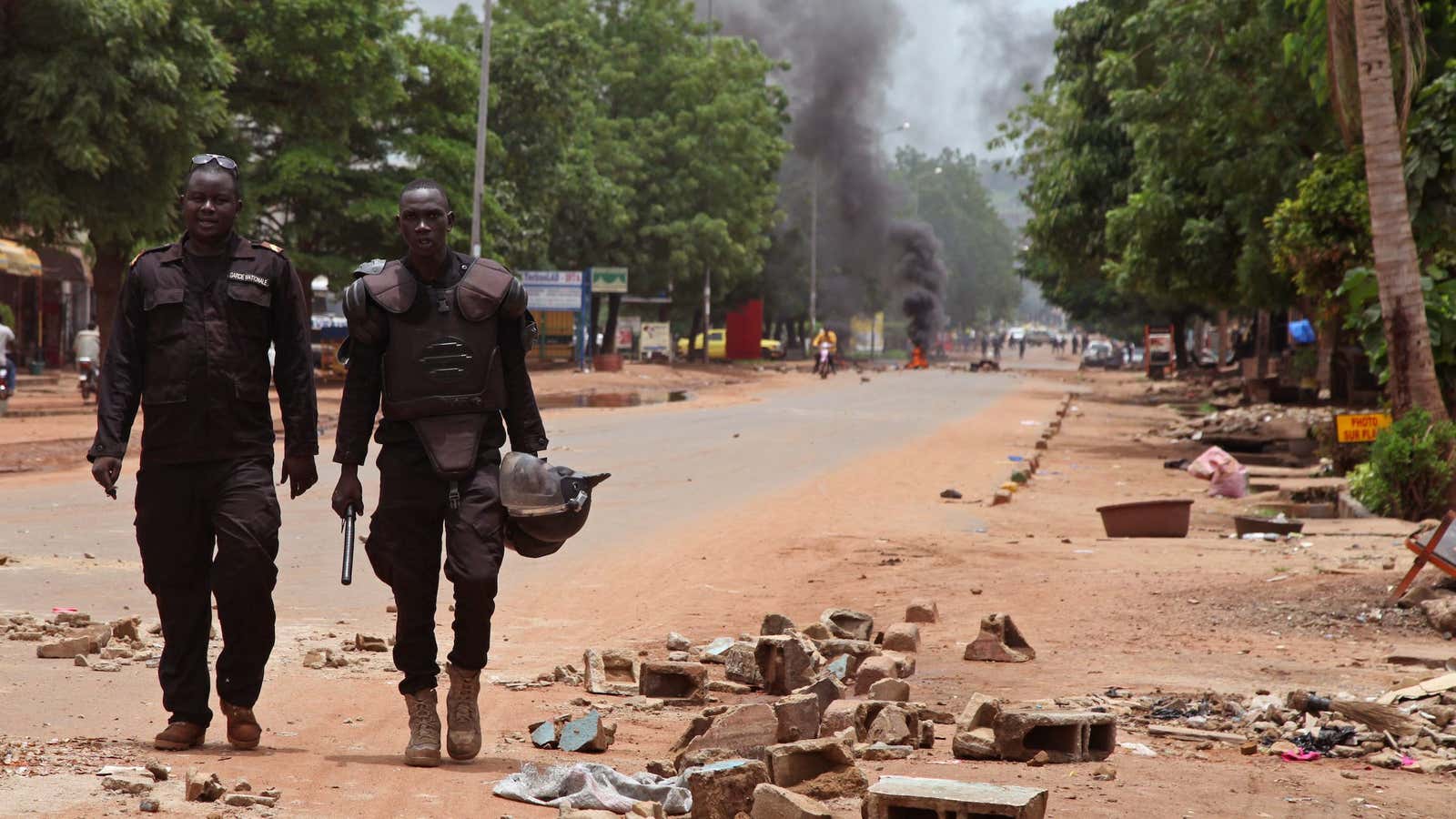It hasn’t been a good week for internet freedom in Africa, with three countries imposing social media blackouts, according to the campaign Keep it On.
Internet users in Bamako, Mali reported not being able to use Facebook and Twitter after protests against the detention of a popular radio host on Wednesday (Aug. 17) turned violent, resulting in three deaths.
Meanwhile, users in Gambia, which is holding a presidential election in three months, said WhatsApp stopped working yesterday. Over the past week, internet and network outages were also reported in Zambia, where protesters have been demonstrating against a presidential election narrowly won by incumbent president Edgar Lungu.
Cutting off access to social media is becoming a common tactic during elections and protests in Africa, as political mobilization increasingly moves online. According to data collected by the public relations firm Portland Communications last year, Twitter users in Africa tweet far more about politics than their counterparts elsewhere:
Switching off social media doesn’t always work. Protesters in Zimbabwe continued to mobilize last month despite a WhatsApp blackout, in what have continued to be the biggest demonstrations the country has seen since contested elections in 2008.
And some leaders are acknowledging the risks, and futility, of these actions. Ghana’s president John Dramani Mahama said this week that social media would remain on in the run-up to the country’s general election in November, despite the inspector general of police urging a shutdown on voting day to bar “misleading information that could destabilize the country.”
